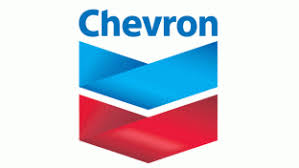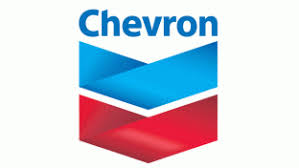
The executive compensation at Chevron Corp would be tied to reductions of greenhouse gas emissions after the company sets targets for reduction which would be mandatory to achieve for executives. The company also plans to tie the rank-and-file bonuses to this condition. This was disclosed by the oil major in the latest climate report that is made public this week.
A number of US oil companies including Chevron had been under pressure from investors to reduce emissions that can lead to climate change and this move by Chevron makes it the first US oil major to take such a step to appease activist investors.
According to the statement issued by the company, it has set a target of reduction of between 25 per cent and 30 per cent in methane and flaring intensity in by 2023 compared to the levels it had in 2016. Chevron also said that the achievement of the intermediate targets would also be applied to determine the incentives that the company pays to 45000 of its employees.
“It’s about the mindset and the culture of the company,” said Chevron Vice President Mark Nelson. A large part of its global workforce would “harness” ideas from all employees.
“This update highlights work we are doing to address climate change risks to our business and new opportunities we’re pursuing. It incorporates responses to some of the thoughtful insights stockholders have shared with us during our engagements,” said Michael Wirth, Chevron’s chairman and chief executive officer. “We look forward to ongoing conversations on how we are managing climate risks to our business and taking on new opportunities to reduce greenhouse gas emissions and develop lower carbon energy.”
Chevron said that in order to understand and respond to Environmental, Social and Governance (ESG) reporting preferences through constant interaction with investors and other key stakeholders, the company has created an ESG.
“We take our corporate responsibility seriously. I am pleased that Chevron is providing this update to its previous reports on climate risks. In prior engagements with stockholders, I have reinforced the important role the Board plays in overseeing Chevron’s management of climate change risks and its assessment of opportunities,” said Dr. Ronald Sugar, lead independent director for Chevron’s Board of Directors.
However, Danielle Fugere, president of investor group As You Sow, said that this measure announced by Chevron is unable to address the full carbon footprint of the company. The company therefore “will not achieve the reductions needed to stabilize the climate and reduce growing economy wide and thus portfolio wide risk to investors,” he said.
There are a number of other large global oil companies – including London-based BP and France’s Total, that have set for themselves targets for reduction of carbon dioxide generated from their business activities in the short term. Earlier in December last year, executive compensation was tied to reducing carbon dioxide emissions starting 2020 was announced by Royal Dutch Shell.
While Chevron plans to reduce its emission and measure it as a percentage of its total production, the company has not set a goal for total carbon emission reduction which is a metric that is preferred by activist investors. The company said that its operations and the assets in which the company has any stake but not operated directly by it would be included in the target.
“This is the first public, industry-led, link between methane targets and joint ventures we’ve seen, and we are interested in how they will actualize and validate this,” said Isabel Mogstad of the Environmental Defense Fund.
(Source:www.heraldcourier.com)
A number of US oil companies including Chevron had been under pressure from investors to reduce emissions that can lead to climate change and this move by Chevron makes it the first US oil major to take such a step to appease activist investors.
According to the statement issued by the company, it has set a target of reduction of between 25 per cent and 30 per cent in methane and flaring intensity in by 2023 compared to the levels it had in 2016. Chevron also said that the achievement of the intermediate targets would also be applied to determine the incentives that the company pays to 45000 of its employees.
“It’s about the mindset and the culture of the company,” said Chevron Vice President Mark Nelson. A large part of its global workforce would “harness” ideas from all employees.
“This update highlights work we are doing to address climate change risks to our business and new opportunities we’re pursuing. It incorporates responses to some of the thoughtful insights stockholders have shared with us during our engagements,” said Michael Wirth, Chevron’s chairman and chief executive officer. “We look forward to ongoing conversations on how we are managing climate risks to our business and taking on new opportunities to reduce greenhouse gas emissions and develop lower carbon energy.”
Chevron said that in order to understand and respond to Environmental, Social and Governance (ESG) reporting preferences through constant interaction with investors and other key stakeholders, the company has created an ESG.
“We take our corporate responsibility seriously. I am pleased that Chevron is providing this update to its previous reports on climate risks. In prior engagements with stockholders, I have reinforced the important role the Board plays in overseeing Chevron’s management of climate change risks and its assessment of opportunities,” said Dr. Ronald Sugar, lead independent director for Chevron’s Board of Directors.
However, Danielle Fugere, president of investor group As You Sow, said that this measure announced by Chevron is unable to address the full carbon footprint of the company. The company therefore “will not achieve the reductions needed to stabilize the climate and reduce growing economy wide and thus portfolio wide risk to investors,” he said.
There are a number of other large global oil companies – including London-based BP and France’s Total, that have set for themselves targets for reduction of carbon dioxide generated from their business activities in the short term. Earlier in December last year, executive compensation was tied to reducing carbon dioxide emissions starting 2020 was announced by Royal Dutch Shell.
While Chevron plans to reduce its emission and measure it as a percentage of its total production, the company has not set a goal for total carbon emission reduction which is a metric that is preferred by activist investors. The company said that its operations and the assets in which the company has any stake but not operated directly by it would be included in the target.
“This is the first public, industry-led, link between methane targets and joint ventures we’ve seen, and we are interested in how they will actualize and validate this,” said Isabel Mogstad of the Environmental Defense Fund.
(Source:www.heraldcourier.com)














